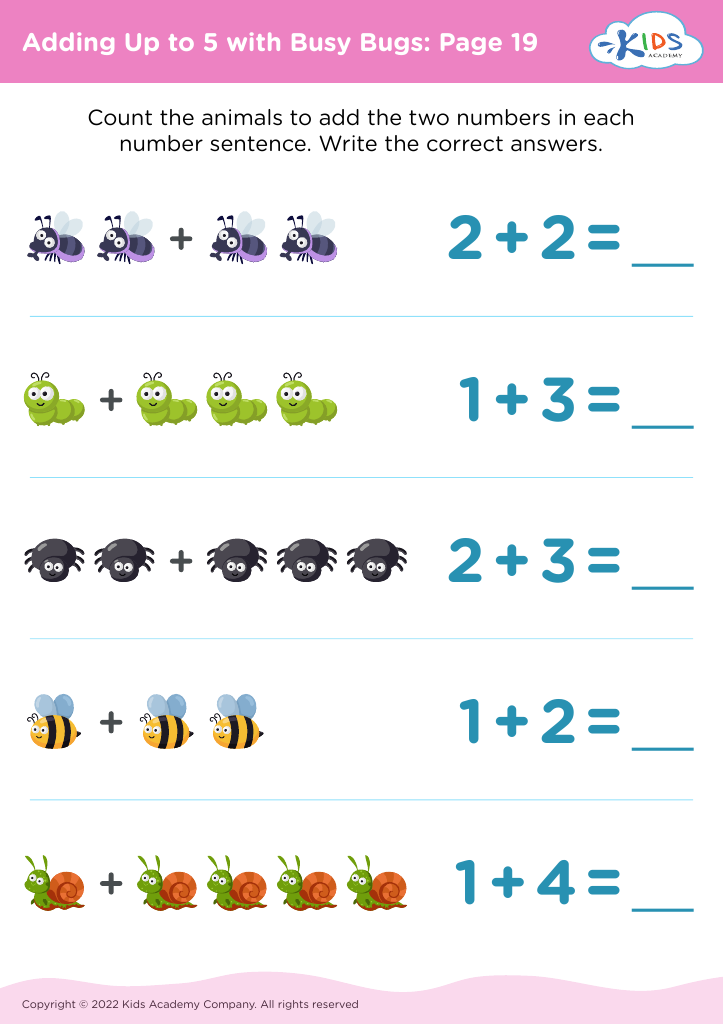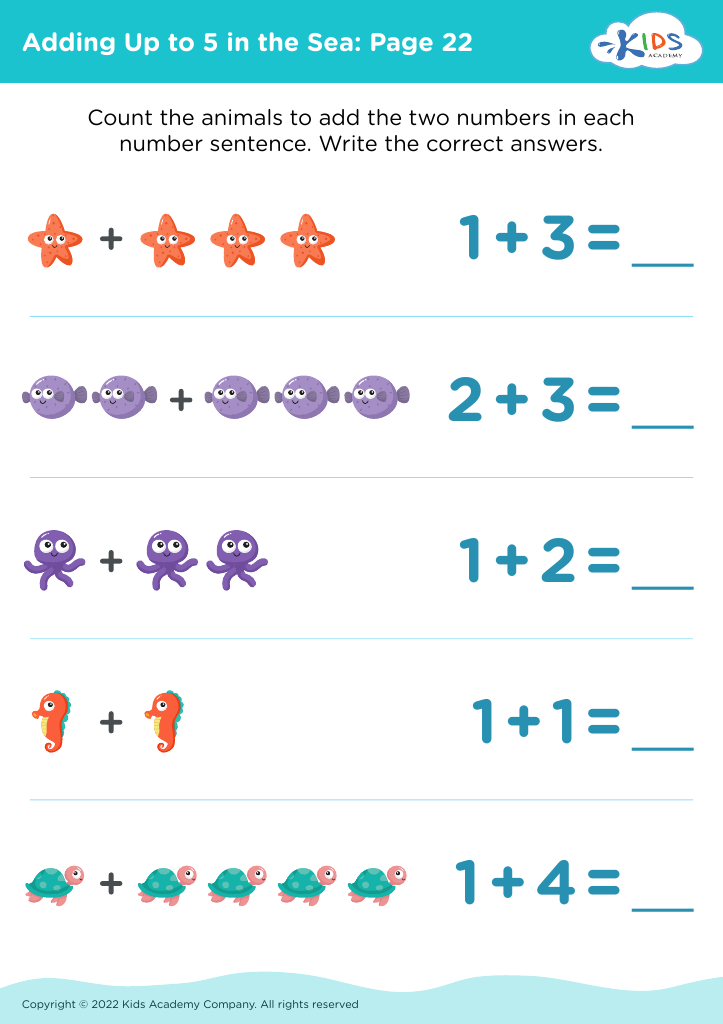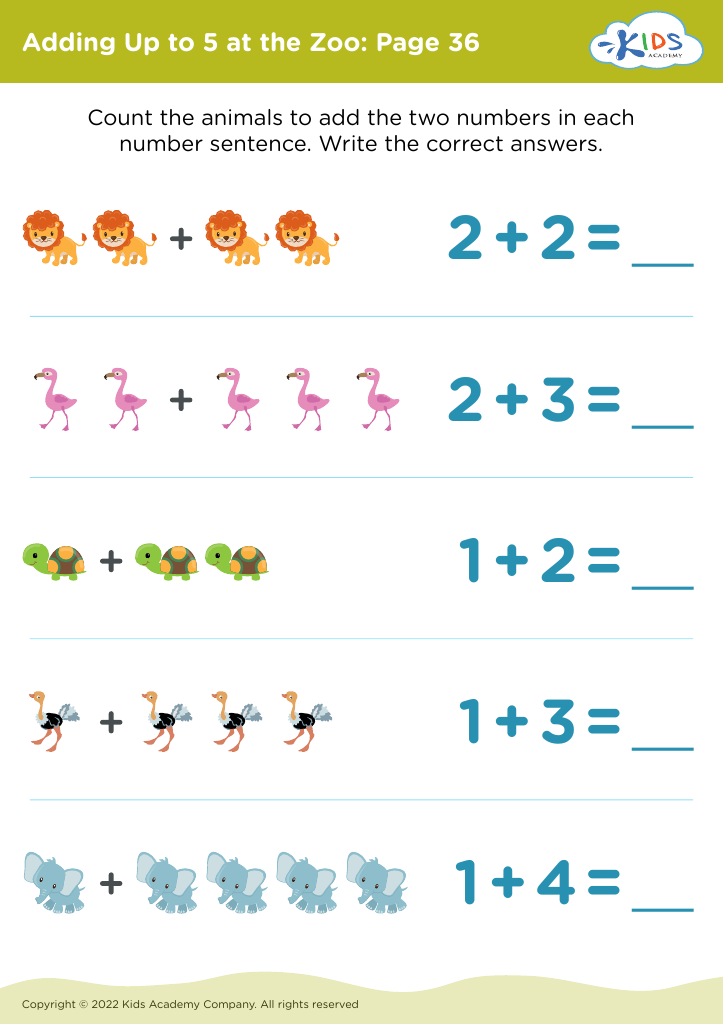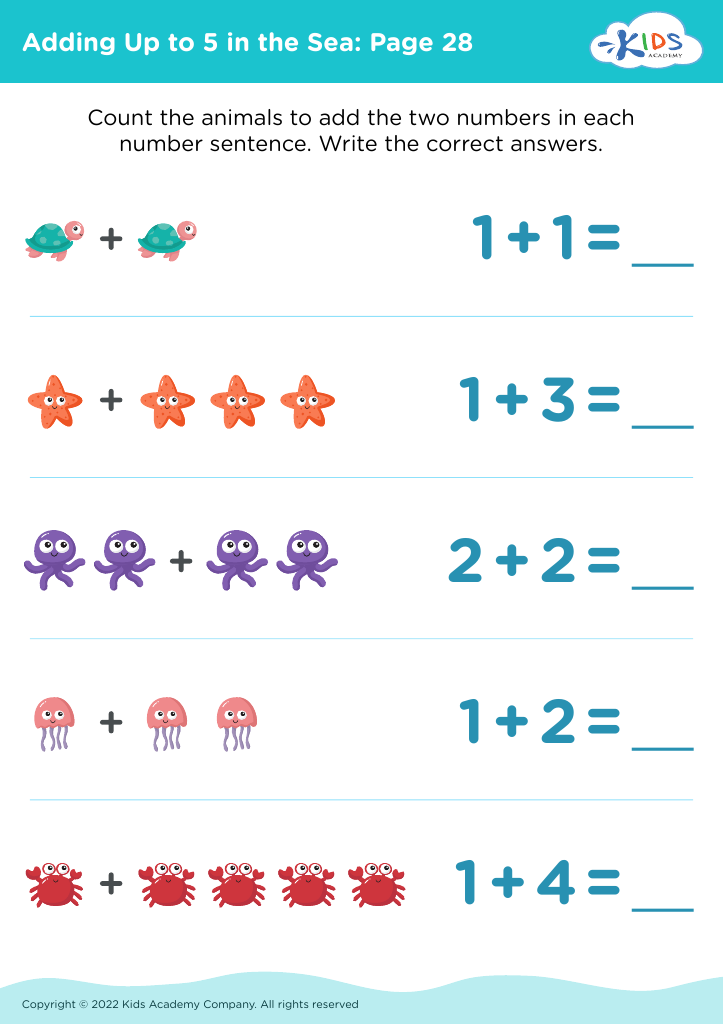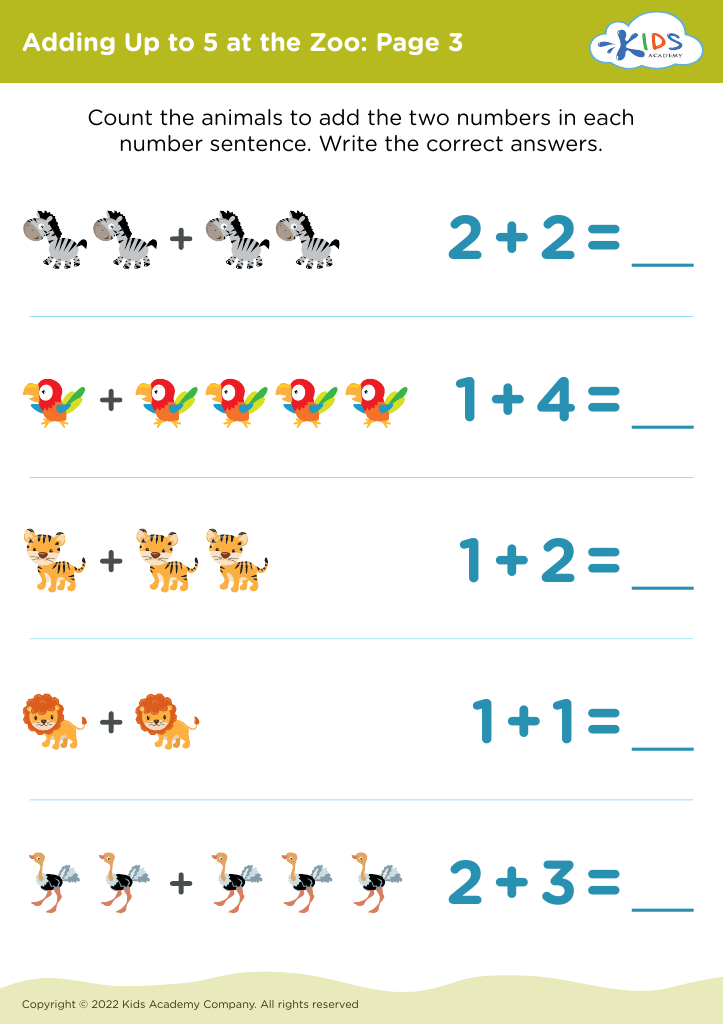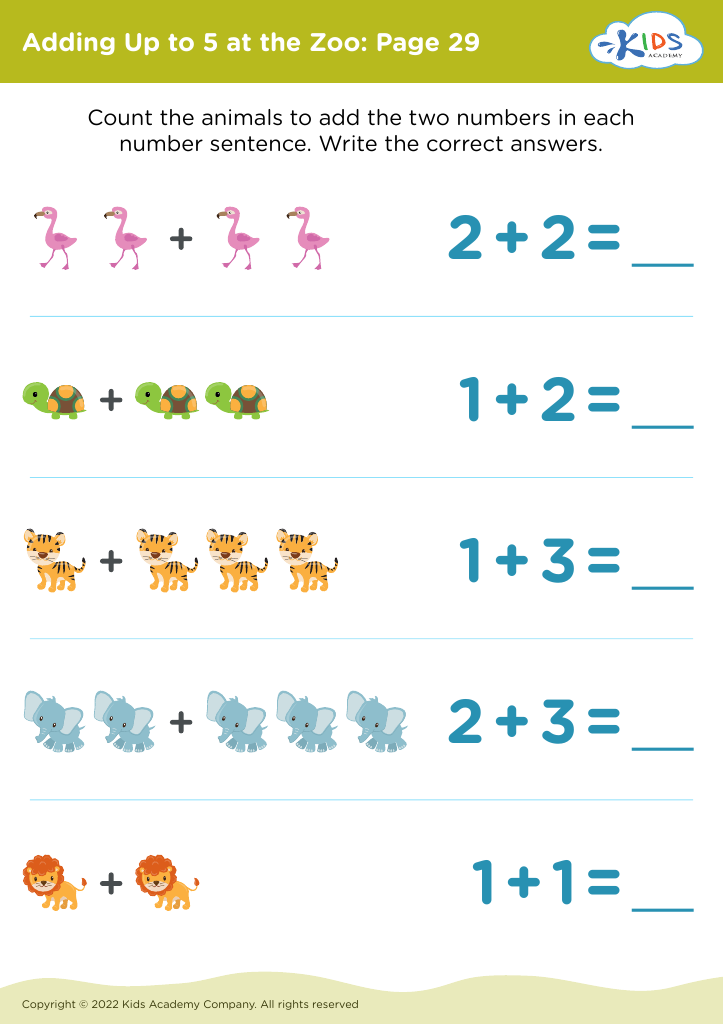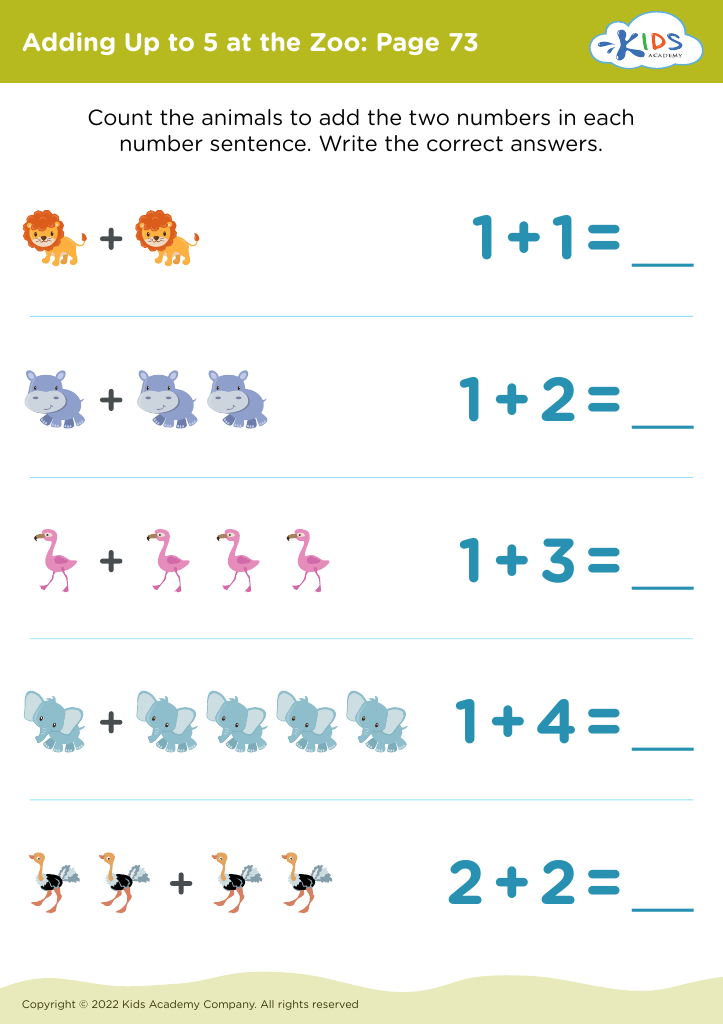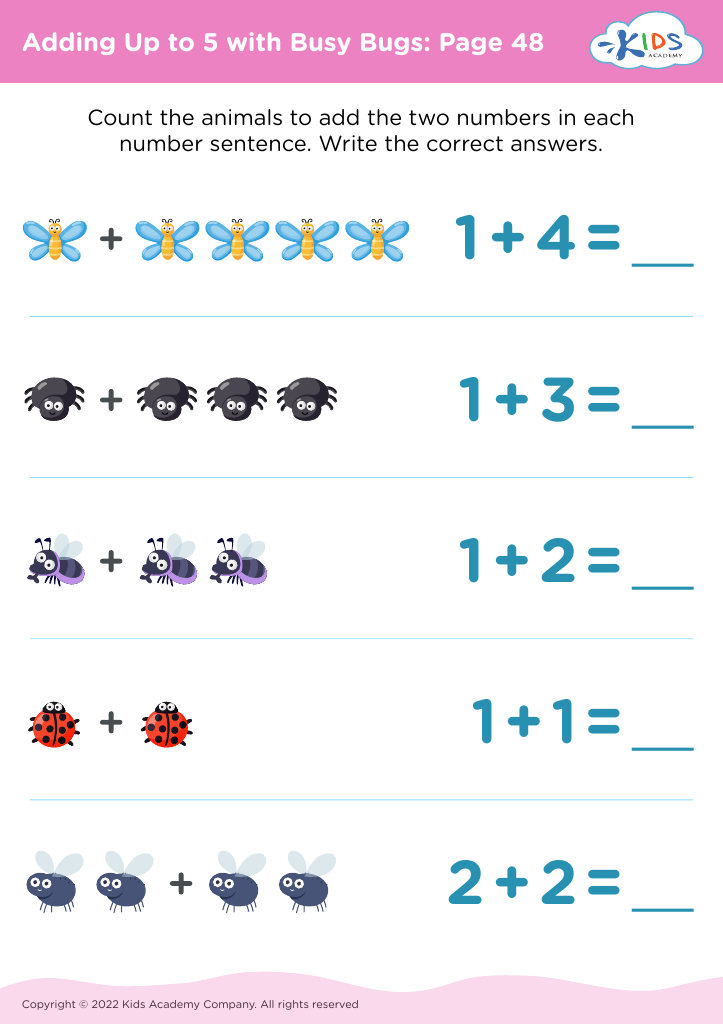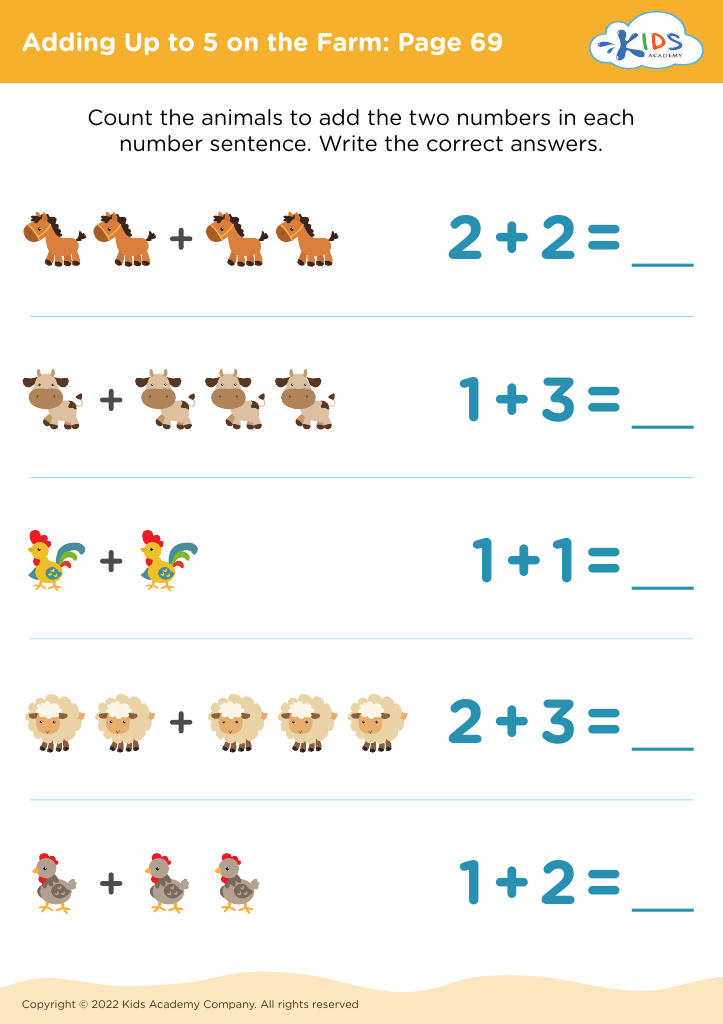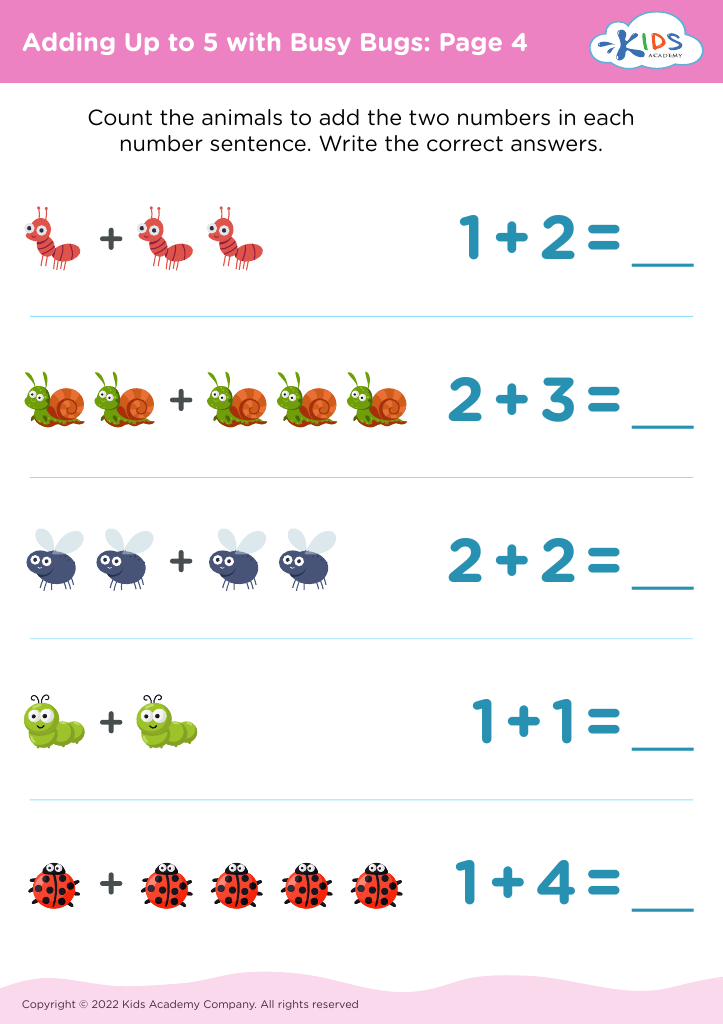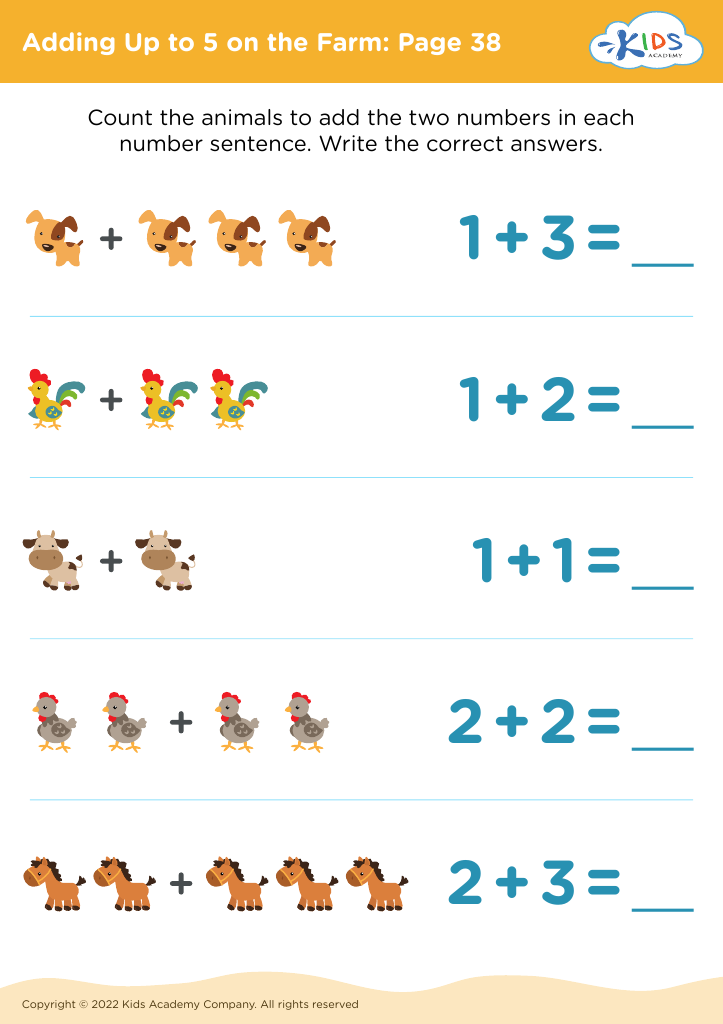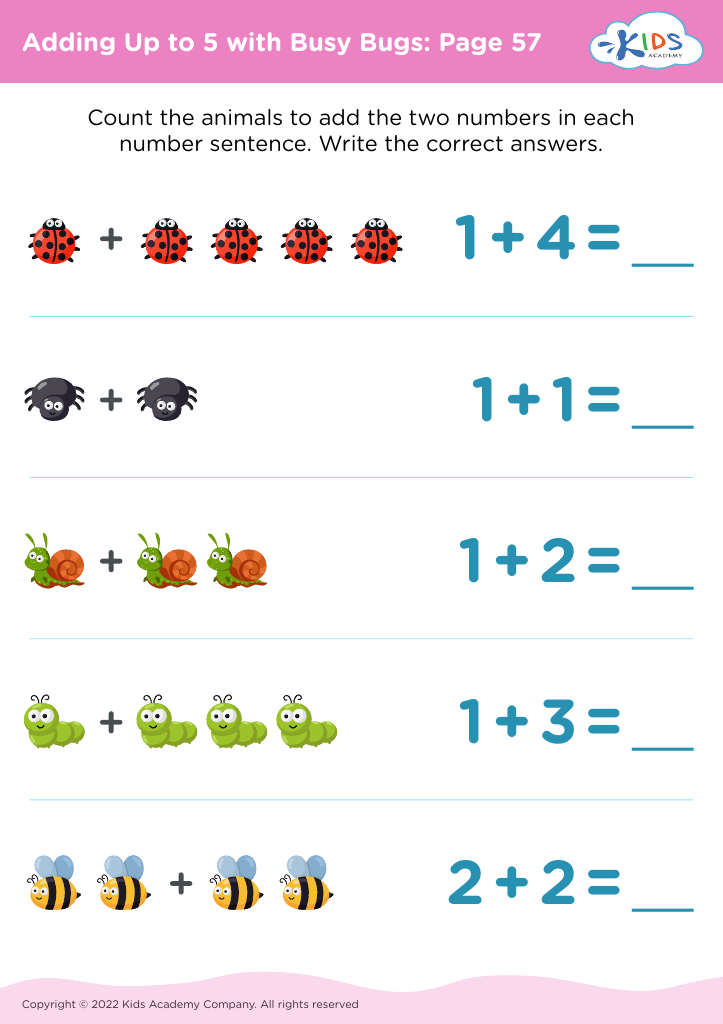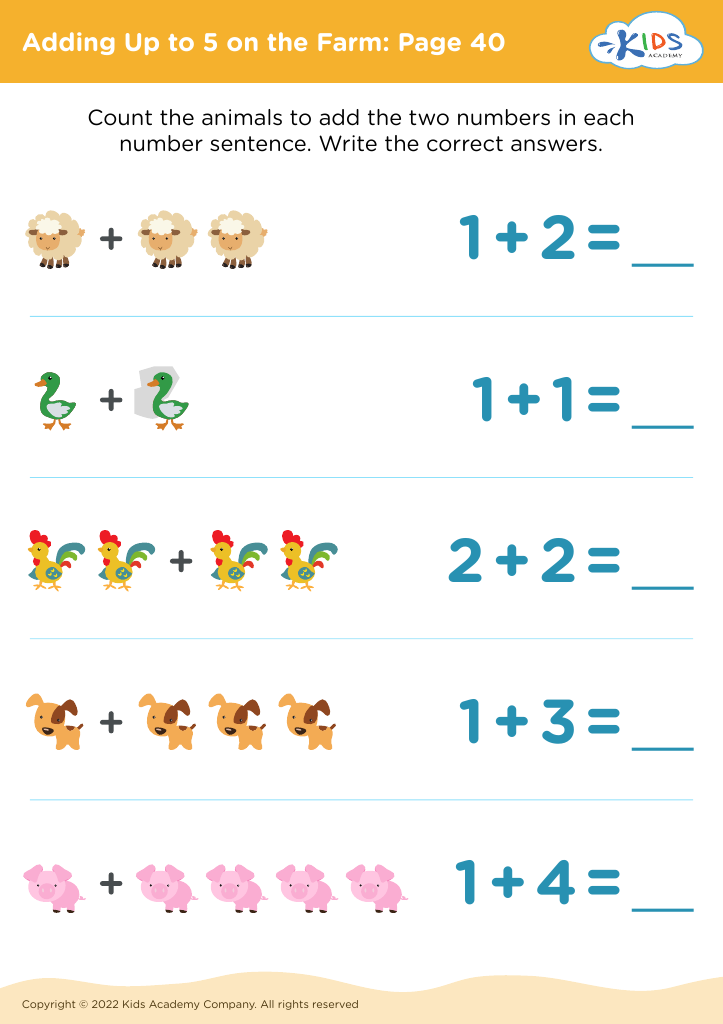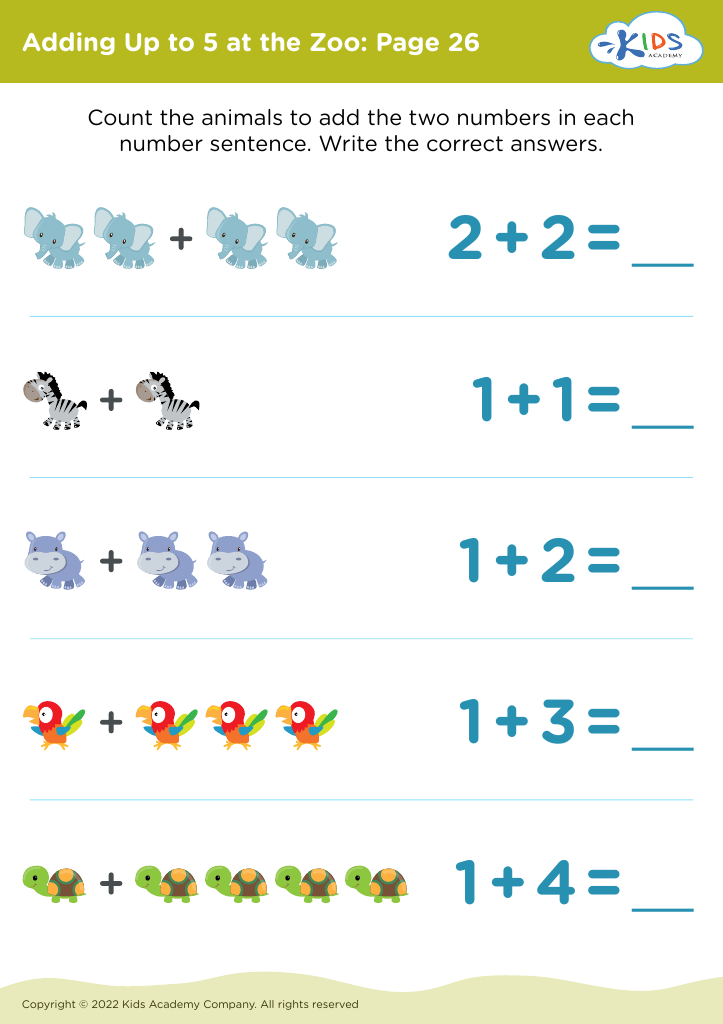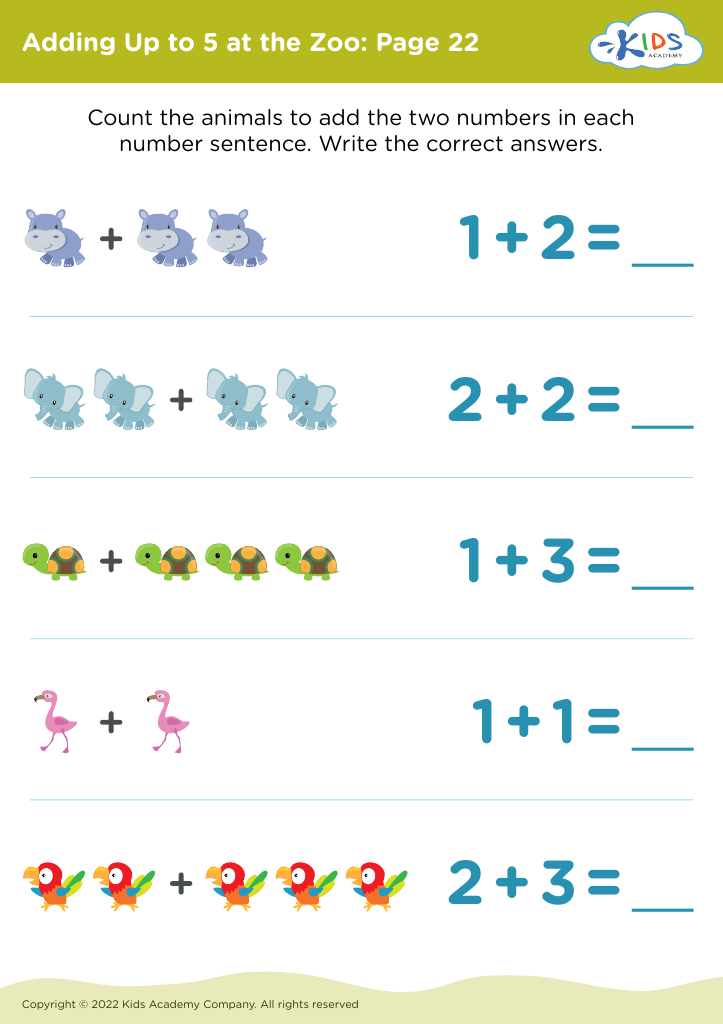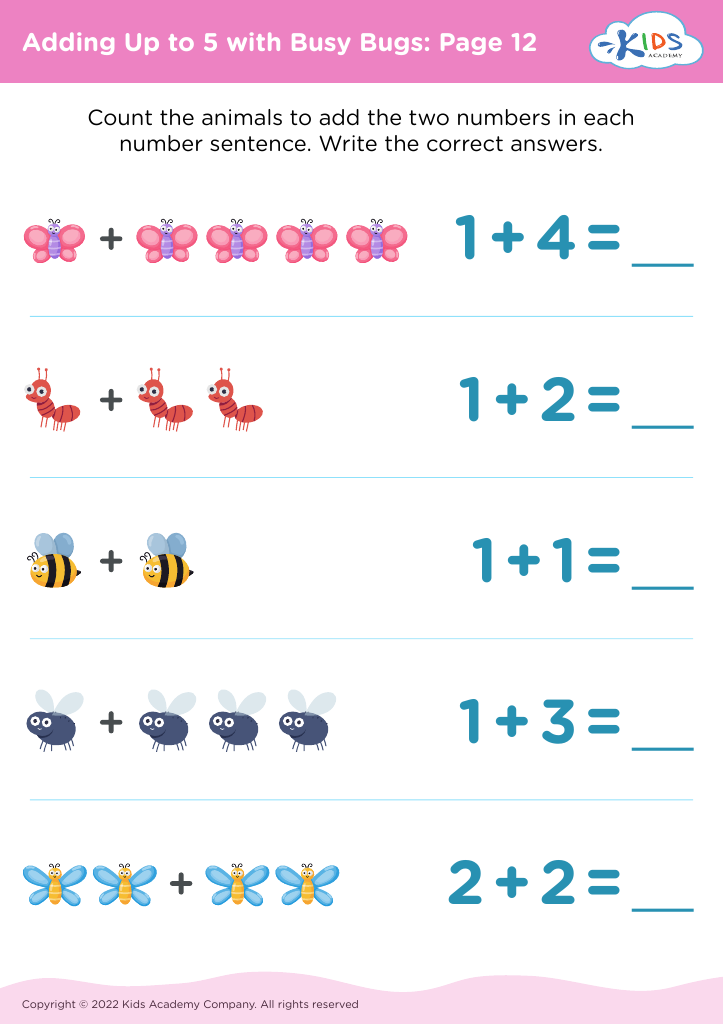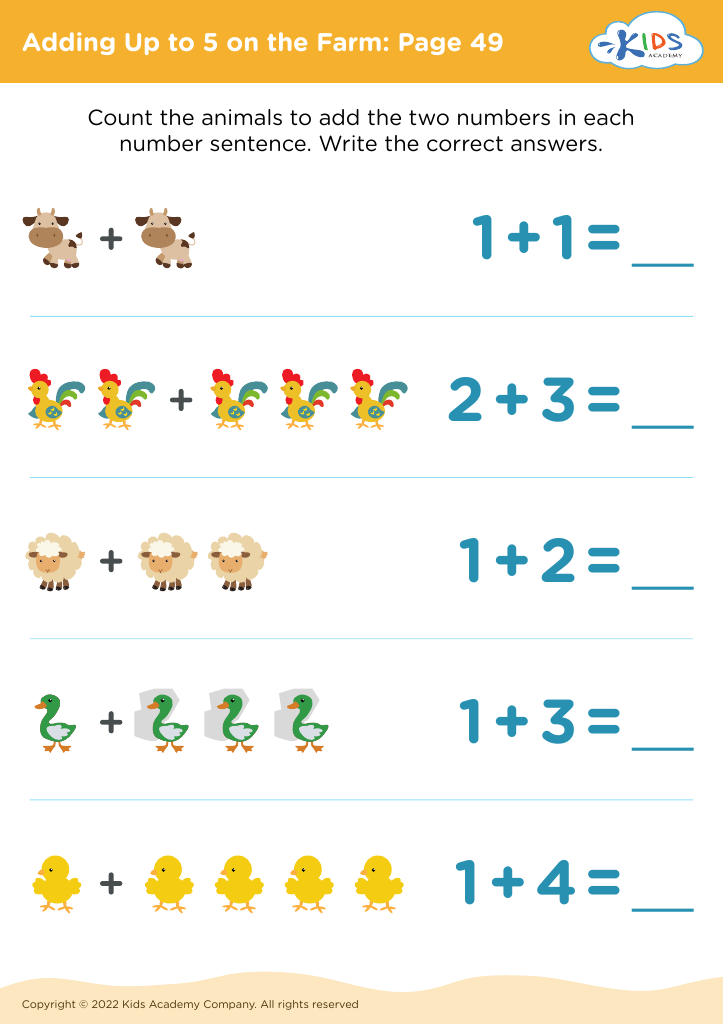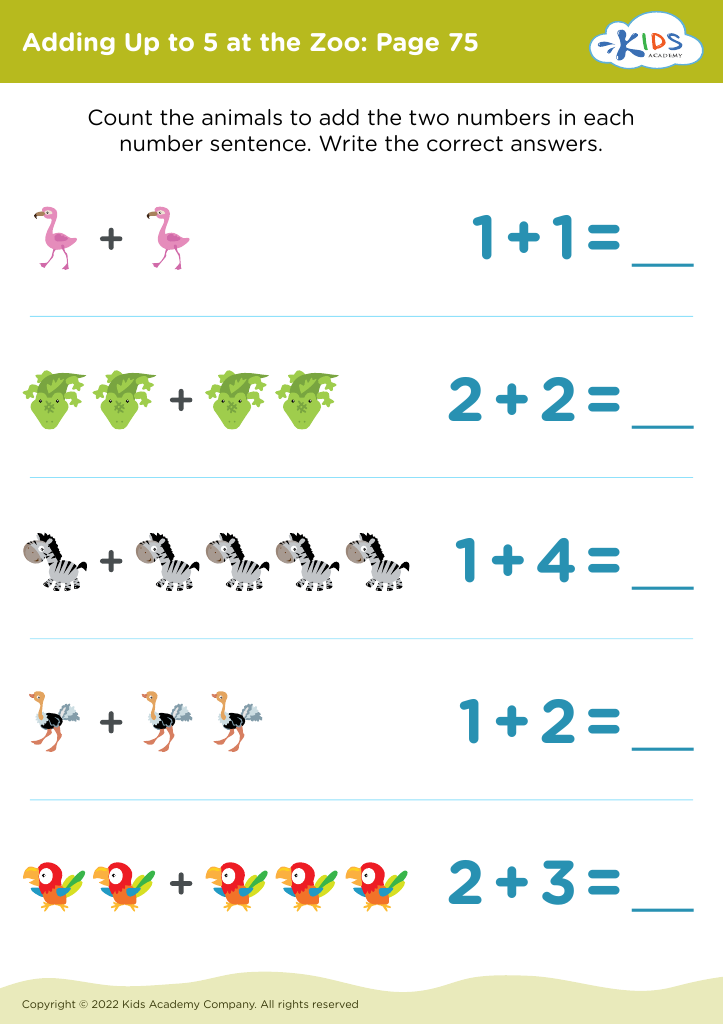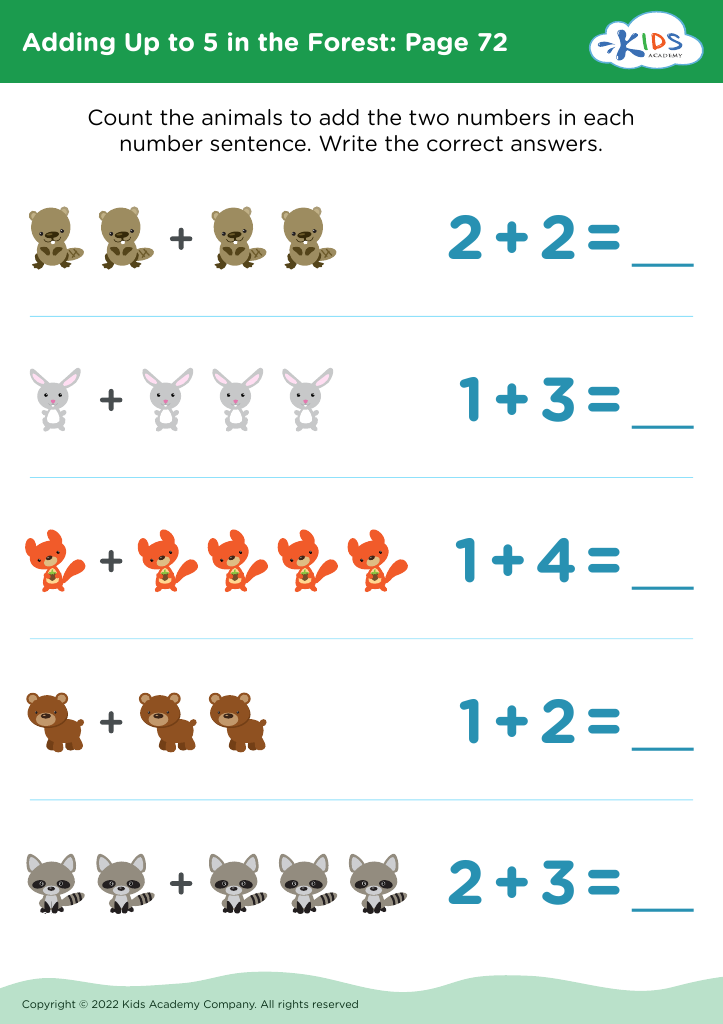Addition skills Addition & Subtraction Worksheets for 4-Year-Olds
99 filtered results
-
From - To
Discover our engaging Addition and Subtraction worksheets designed specifically for 4-year-olds! These fun and interactive resources help young learners develop essential math skills while enjoying hands-on activities. Filled with vibrant illustrations and age-appropriate exercises, our worksheets encourage children to grasp the concepts of addition and subtraction through play-based learning. Your little ones will become confident in their math abilities by using these resources, enhancing their number recognition and understanding of basic operations. Start your child's mathematical journey today with our expertly crafted worksheets that make learning fun and entertaining! Join us in fostering a strong foundation for future math success!
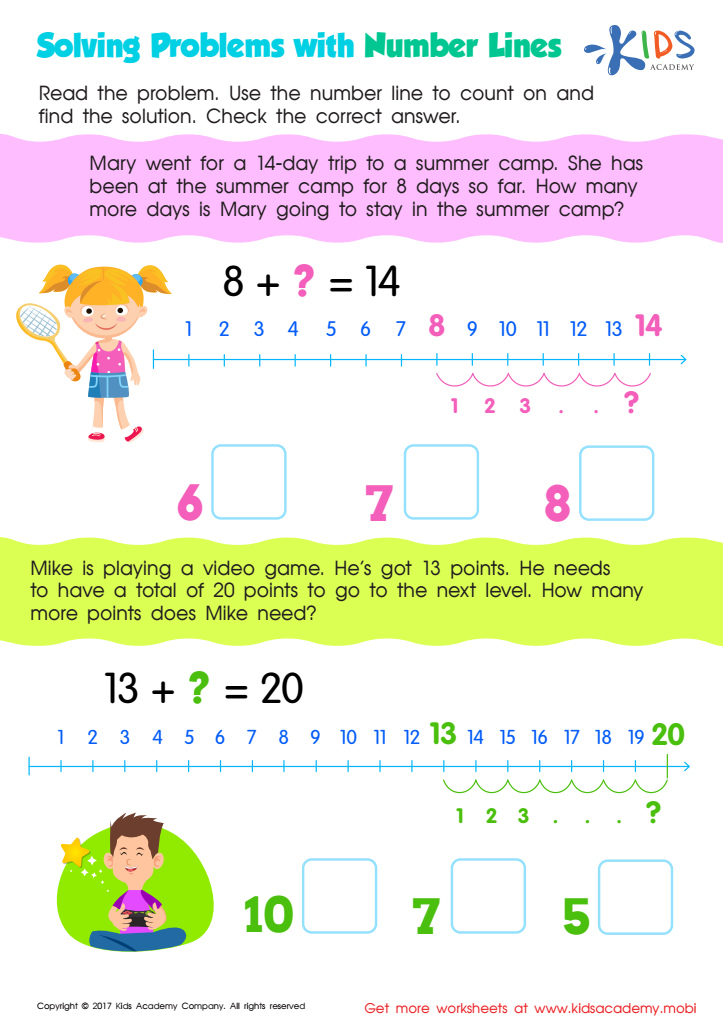

Solving Problems: Number Lines Worksheet
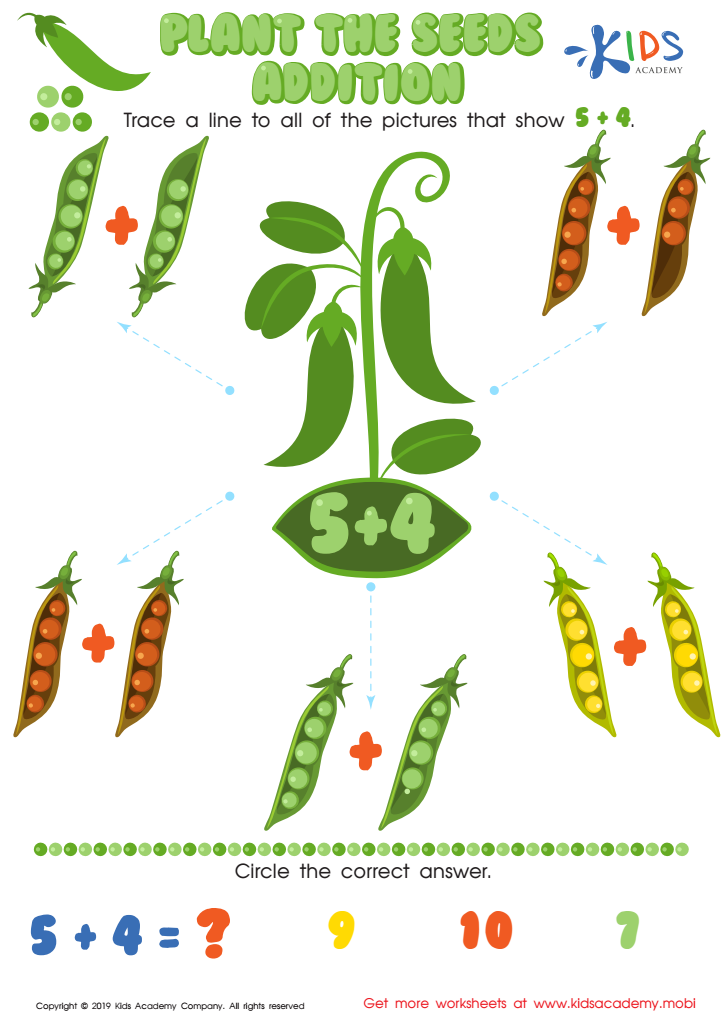

Plant the Seeds Addition Worksheet
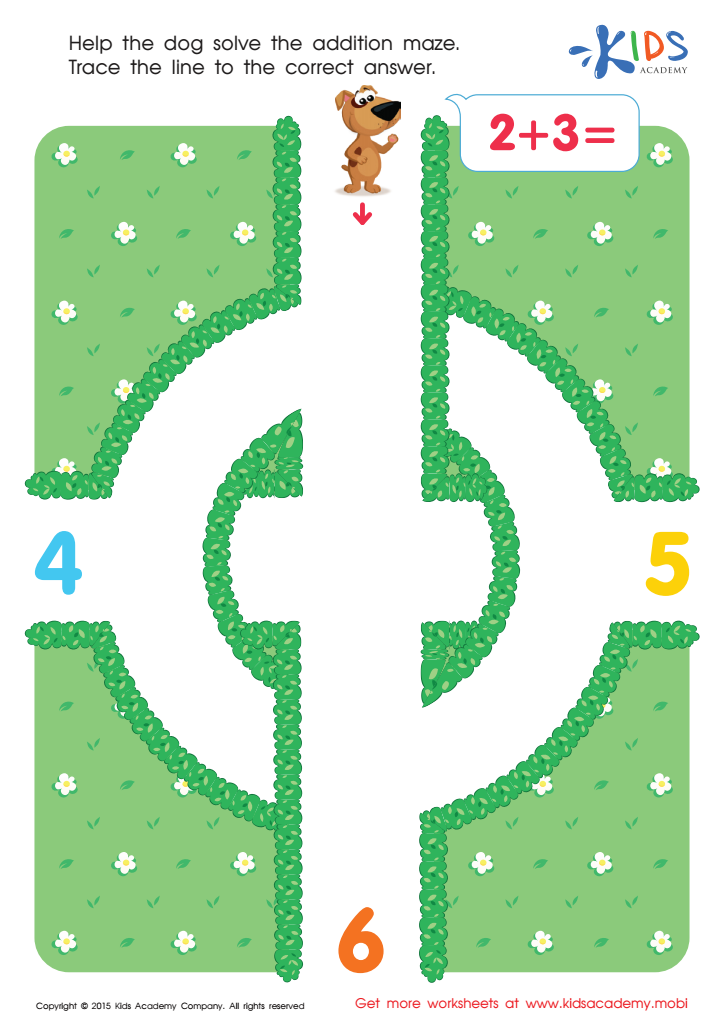

Two And Three Addition Worksheet
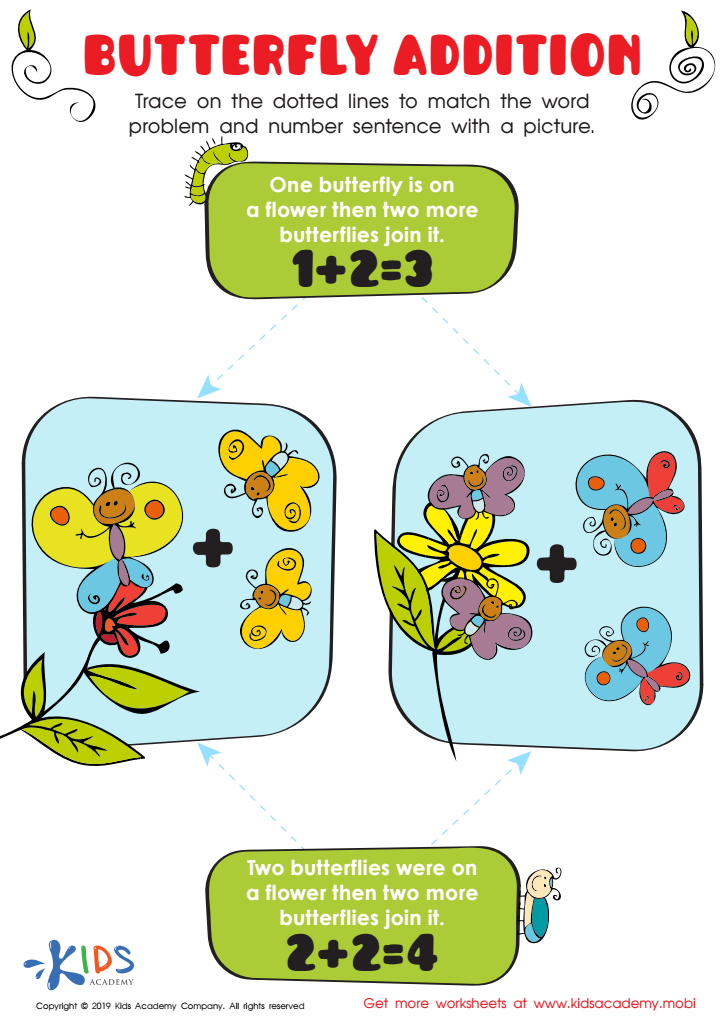

Butterfly Addition Worksheet


7 Continents and 7 Seas Worksheet
Parents and teachers should prioritize addition and subtraction skills for 4-year-olds because these foundational math concepts play a critical role in a child's cognitive and social development. Mastery of basic arithmetic fosters problem-solving abilities and logical thinking, which are essential not only in math but across all areas of learning.
Introducing these skills early cultivates a positive attitude towards math, helping children see it as a fun and accessible subject rather than a daunting one. Engaging in simple addition and subtraction through games, stories, and hands-on activities makes learning interactive and enjoyable, thus enhancing memory retention.
Additionally, these early math skills are closely linked to future academic success. Children who grasp basic concepts in early childhood are generally more prepared for advanced mathematics later on, reducing the likelihood of struggles as they progress through school.
Moreover, helping children learn to add and subtract furthers their ability to understand the world around them – such as counting toys, sharing snacks, or even understanding time. By focusing on these basic skills, parents and teachers lay the groundwork for lifelong numeracy skills, promoting greater confidence and independence in young learners.
 Assign to My Students
Assign to My Students

